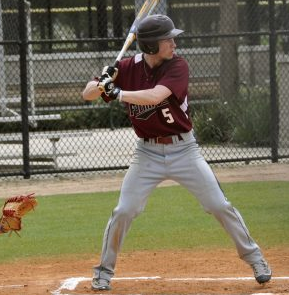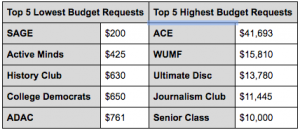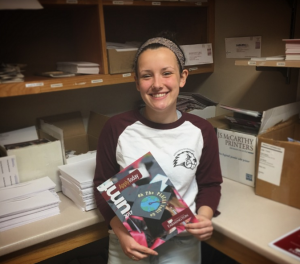
Apr 20, 2017 | Opinion |
By C.L. DeLisle, Contributing Writer

(Photo Courtesy of Pinterest
Life has a funny way of leaving us with more questions than answers. Throughout history we have always sought explanations to these existential mysteries. Billions of people have turned to religion and a belief in something beyond this world for solutions. Over half the world’s population worships one of the three major religions: Christianity, Islam, and Judaism.
These religions are united by one fundamental principle: they worship the same God. Despite the similarities they share, we only ever seem to be reminded of acts of monstrosity that distance people from each other, rather than unite them. When we look beyond the misconceptions, we can start to define ourselves through similarities, rather than differences. To better understand where the common ground lies, I spoke to representatives of the three major religions. Ultimately, one answer became prevalent: we are one.
The religious leaders all expressed a similar benefit that is gained through practice. Dr. Jonathan Cohen, a professor of philosophy at UMF, stated, “practicing Judaism helps give me a peace of mind.”
A stone’s throw away from Cohen’s office, Father Paul Dumais of St. Joseph’s Catholic Church elaborated on this. He said, “Religion yields a peace that arises from responding to a very fundamental truth.”
The ambiguous concept of this “truth” would later be explained by Monsignor Henchal of St. Maximillian Church in Scarborough. Henchal, organizer of “Building Bridges Dinner,” which brought together followers of Christianity and Islam, stated that, “Religion tries to get us beyond the superficial components that sometimes dominate our lives.” He continued, “It tries to get us to something greater. Something more beautiful than what we have.”
These religious leaders expressed how responding to this fundamental truth, a reality which is far greater and more beautiful than we can even comprehend, grants a kind of peace of mind to the faithful. Critics of religion, however, argue against this point by asking the question; how can an omnipotent, benevolent, and omniscient God allow so many terrible things to happen? The responses of the religious leaders were once again unanimous.
“As humans we have a strong desire for free-will, and God gives us that free-will,” said Omar Conteh, the outreach coordinator at the Islamic Center of Maine in Orono. He continued, “How can we then blame God when we see the terrible things that people choose to do with that free-will?”
Father Paul elaborated on this, stating that we must first determine the root of these evils. “We must think about the role of God, but we must also look at our own role and our responsibility in the presence of evils in the world,” he explained.
To understand further where the root of these evils stem from, Monsignor Henchal provided insight. “The line of good and evil doesn’t run between groups of people,” he paused briefly before continuing, “the line of good and evil runs through every human heart.” Before blaming God for the sufferings that we experience, we must first look at our own responsibility for these evils, and how we may be able to overcome them.
Dr. Cohen shared a central idea of Judaism, he stated, “We are partners with God in perfecting this world, and we must do whatever we can with what we have.”
Lastly, Father Paul left us with a message of hope that stems from difficult times. “When we enter into the great mystery,” he continued with a smile, “it’s interesting to see that when something bad happens to us, something good always seems to come out of it.”
My last question sought advice to how we may be able to unite in these challenging times of racial tension and ideological division. Again, their responses reflected a unanimous sentiment.
“I think the biggest issue is pretending that we don’t have anything in common,” said Conteh. “We live in a world of competing ideas, within that competition we must be able to recognize the vast commonalities we share.”
Cohen shared a similar viewpoint with Conteh, he stated, “we must be able to see ourselves and our own values in another person.”
Monsignor Henchal took this a step further, saying that we actually need each other’s different opinions and beliefs. “There’s an element of truth to everything, but no one has the entire picture.” He continued, “there’s always something that we can learn from each other.”
Father Paul left us with a recipe for acknowledging common ground, while admitting our differences, but always doing it with a deep respect and charity towards each other. Citing Saint Augustine, he stated, “In essential things let there be unity. In doubtful things let there be freedom. In all things let there be charity.”
Travelling to mosques, churches, and temples to create this story, I couldn’t help but notice a striking similarity. No matter the location, children’s colorful art could always be found lining the walls. Artwork that innocently depicted the love that God, Allah, or Yahweh has towards his people and the love that his people have for each other and for him.
Monsignor Henchal explained the cause of his Building Bridges Dinner. Said Henchal, “when people see each other for who they are, we realize that we have a lot of the same concerns. We both have little kids running around, and we interact with them in the same way. We have the same hopes and dreams for the future, for ourselves, and for our children.”
As walls continue to rise and ideological alienation worsens, it is important for us to remember where the answers to our questions lie. The answers to our questions do not lie in a news report, a lecture hall, or through a political leader. The answers to our questions lie within. We must look to each other and realize that we share a common dream for ourselves, for our children, and in the hope for a bright future. When we begin to open our hearts and really explore these existential mysteries, we may finally start to understand –– we already know the answers.

Apr 20, 2017 | Uncategorized |

(Photo Courtesy of UMF Website)
Fifth-year senior and former UMF baseball player Sean Cabaniss was recently featured on WCSH 6 for his research work developing a mathematical system for creating optimal batting line-ups. Cabaniss graduated last year with a degree in secondary education and returned this year to complete a second degree in math with a minor in coaching, according to WCSH 6. Using Major League Baseball (MLB) statistics Cabaniss has found that there are over 360,000 ways to arrange a lineup up of nine players. According to a UMF press release, Cabaniss has also relied on the use of mathematical Game Theory and the support of his faculty advisors to reach his conclusion. Cabaniss will be presenting his findings at UMF’s annual Michael D. Wilson Symposium on April 26. He hopes to eventually publish his work so that professional teams may benefit from his research.

Apr 20, 2017 | News |
By Nick Bray, Staff Reporter
At a recent meeting of the UMF Student Senate general assembly, senators approved the budgets for 38 clubs and organizations for the 2017-2018 school year. The budget, which was set at $215,012.74, is appropriated from funds raised by the student activity fee. This fee is based on the number of credits a student takes, and ranges from $80 to $160 per year.
The approved budgets ranged from $200 for the Student Activists for Gender Equality (SAGE), to $41,693 for the Association for Campus Entertainment (ACE). The average budget approved was for $5,658; 25 clubs had a budget approved below the average. The top five highest budget requests totaled $92,728, which amounted to 43 percent of the entire budget approved.
This meeting was the final step in the annual budget process, which begins with clubs submitting a proposed budget to the senate for review. These clubs then meet with the Annual Budget Committee (ABC) to defend their budget and discuss where potential cuts could be made. According to Dominic Martorano, outgoing Officer for Financial Affairs (OFA), the ABC works with clubs during this meeting to make small cuts to their budgets. “Unfortunately, cuts do have to be made here and there,” Martorano said. “On average about 10 percent is cut from the original request.”
Clubs which were present at the general assembly budget meeting had an opportunity to defend their budget to senators before it was voted on. The budget meeting moved swiftly as senators had little discussion over the majority of proposals, and most club budgets passed unanimously.
However, there were discussions about cutting line items from proposals from three clubs. The senate discussed and eventually failed to pass a motion to cut a $200 trip to Portland from the French Club’s budget.
Another failed motion was to increase the number of athlete registration fees for the Ultimate Disc club from 25 to 30. A few senators argued this would benefit the club if they underestimated participation for the upcoming school year. This would save them from using one of their two additional budget requests if the number of players on the team next year exceeds 25.
The biggest discussion of the night was over the Computer Club’s budget, the only one which was cut during the budget meeting. The computer club requested two new desktop computers, at a cost of $1,300 each. Senators discussed whether they wanted to cut their request from two computers down to one.
The club currently has nine computers in use. Due to the high use of these machines and poor room conditions in their office located in the student center, they have two machines which are slowly becoming unusable for computer gaming. The new machines would also be used to support the growing interest in competitive gaming, more commonly known as eSports.
The computer club needed to upgrade its machines in order to meet the high system requirements of the games played in competition. “We would like the computers to support that, but these machines wouldn’t be used exclusively for that purpose,” said Desiree Anderson, treasurer of the Computer Club.
The senate passed a motion to reduce the budget request for two computer down to one. Senator Sam O’Neal, also the event coordinator for the Computer Club immediately indicated that the club would be appealing the decision and asked about the specifics of the appeal process.
Several student senate-funded clubs did not present budgets during the annual budget process. These clubs include Beta Beta Beta and Writers Guild. They will have the opportunity to present a budget in the fall. “This depends on availability of funding and the discretion of the new executive board,” Martorano said.


Apr 20, 2017 | Feature |
By Caleb Grover, Contributing Writer

First-year Secondary Education Major at UMF McKayla Marois. (Photo Courtesy of McKayla Marois)
There are not enough hours in a day, or that’s how it seems for first-year McKayla Marois. Marois is a secondary education major with a concentration in English, and a minor in music. Teaching has been Marois’ dream since she was in elementary school, and influencing others to better themselves, has always been a part of who she is. “I like seeing people’s faces suddenly light up when they understand something,” said Marois.
Currently she is the secretary of the UMF College Republicans, and is expanding her leadership in the club, as she will be the vice president next semester. In addition to that, Marois will also be the Vice Chair of the Maine Federation of College Republicans next semester. “McKayla is a good leader because she takes initiative in all of the tasks at hand,” said Isaac Michaud, President of the UMF College Republicans. “McKayla is very outgoing and social. She is a wonderful person to be around and she never ceases to make me smile or laugh!”
Marois works as an Admissions Ambassador, the job she wanted before her freshman year started. Marois said that like teaching, she enjoys seeing people’s expressions on tours when they realize UMF is where they want to be. Marois hopes to one day be in a leadership position in Admissions. She strives to be her best as a tour guide, and always represent UMF with a smile and a warm welcome.
“She is someone who is dependable, absorbs a great deal of information quickly and will ask questions if she needs clarification, that’s one of the most important things,” said Lisa Ellrich, Associate Director of Admissions, “I love her quiet leadership style. She takes it all in and is very thoughtful about her responses and reactions.”
Marois will be a C.A. in Dakin Hall next semester. “I really like the community here, and hope to use all the tools I am gaining through my experiences, in my classroom someday.”
Marois finds that competing and playing sports allows her time to relax from her busy schedule. She frequently participates in intramural sports at the FRC, and is a member of the UMF Women’s Lacrosse team.
A tenured member of UMF’s premiere a capella group, Clefnotes, Marois attends three rehearsals a week. She goes to every club meeting, attends lacrosse games and practices, works three days a week in Admissions, and still finds time to balance a social life and a GPA well over 3.0.
As a freshman, Marois’ college journey has just begun, and it seems that her impact on UMF and the surrounding community will only continue to grow. “I see more leadership roles in her future at UMF, and making a positive impact on the UMF community and the greater Farmington community,” said Michaud.
Apr 20, 2017 | News |
By Harley Davis, Contributing Writer
It’s a typical Monday morning as I begin my 40-minute drive to UMF, taking the winding and twisting back roads from my home in Oakland to Farmington. Spring has finally arrived and my drive, only a few weeks ago lined with snow banks and slippery roads, is now filled with potholes, warm air, and flocks of birds flying back to their summer homes.
I make this trip to Farmington five days a week, spending over six hours a week commuting to and from campus. The time spent driving equals about half the time I spend in classes at UMF per week. However I’m not the only student making a long drive to campus. According to the university website, while 86% of freshmen live on campus, 50% of UMF students choose to live off campus, whether it be within walking distance or driving to and from school. Nationally, 75% of college students choose to commute to campus instead of living in dorms, according to Complete College America.
According to UMF’s admission page, the cost for full time students to live on campus for one year is $9,334. This price, added to the cost of tuition is one of the main reasons I and other students choose to live off campus. Ashton Harvey, a junior at UMF, chose to commute to save money. “I did the math and my tuition would be cut in half,” Harvey said. “By living off campus I don’t have to have a meal plan, I work to pay my rent and that eliminates some of the overall cost of college and the amount of debt I have.”
While living off campus saves money, it comes with its challenges. Megan Rodrigue, a senior in elementary education, said that even living within walking distance to UMF has its drawbacks. “One thing that has bugged me about living off campus is that I miss out on stuff that is happening or going to happen on campus,” Rodrigue said, “Even though I don’t live on campus I’m still close enough that I would like to feel like I’m part of the university.”
Parking is an issue for all members of UMF, but can be especially frustrating for commuting students. “When UMF hosts events the parking lots commuters usually park in are reserved for the event,” Harvey said, “I spend so much time looking for a parking space that sometimes I am 15 minutes early but end up being late for class.” This issue becomes compounded in the winter, when eventually there is no more space to push all the snow. “Taking up four to ten parking spaces to pile up snow makes it that much harder to find a parking space,” said Harvey.
The Off Campus Commuter Council located in Student Center Room 109 is in place to help and support the commuting students of UMF. Every month the council offers free monthly breakfasts and lunches to students. Commuters are also given the option to rent a locker from the council so commuters don’t have to leave everything in their car during class. The council also helps students find accommodations to stay overnight on campus when the winter weather makes driving home nearly impossible.
As I pull into the commuter parking lot and happily claim the last available spot, I think about the time and money I spend each week driving to school. Is it easier to live on campus? Probably, but I wouldn’t be able to see the rolling fields of green grass in late spring dotted with black and white cows, or the fields of corn golden and shining in the fall, the views that make me thankful I go to college in a beautiful town in Maine.



